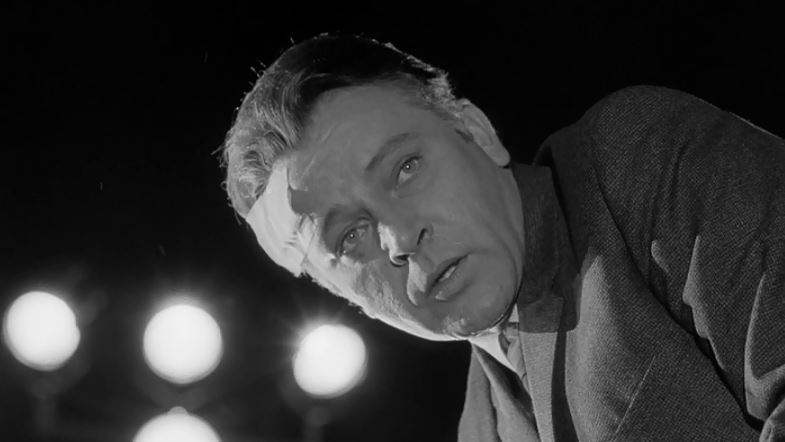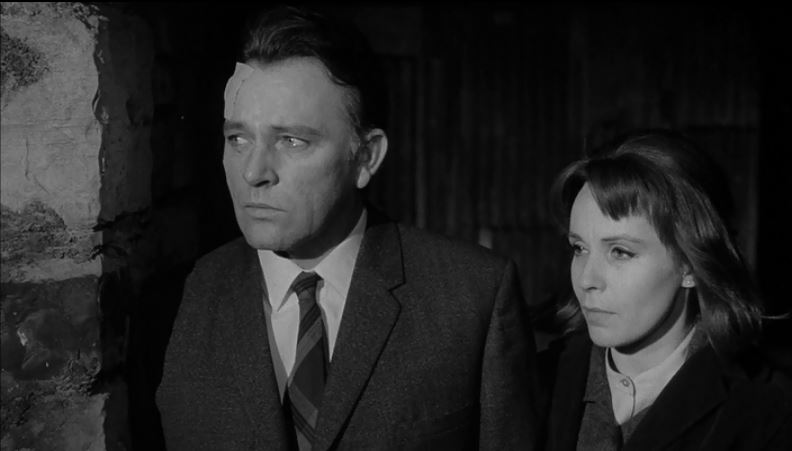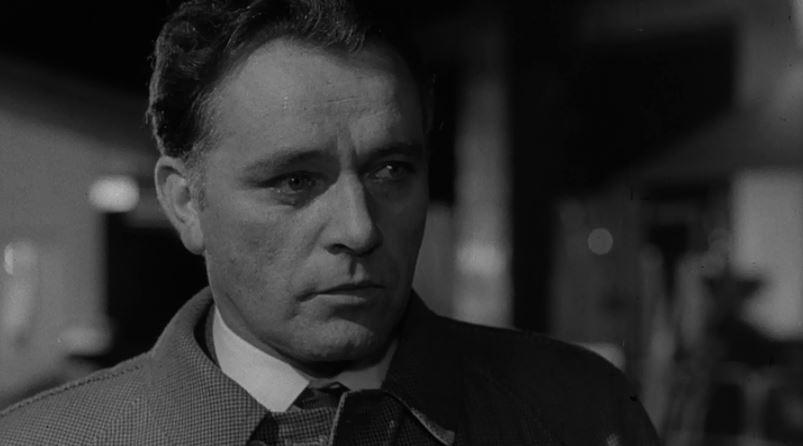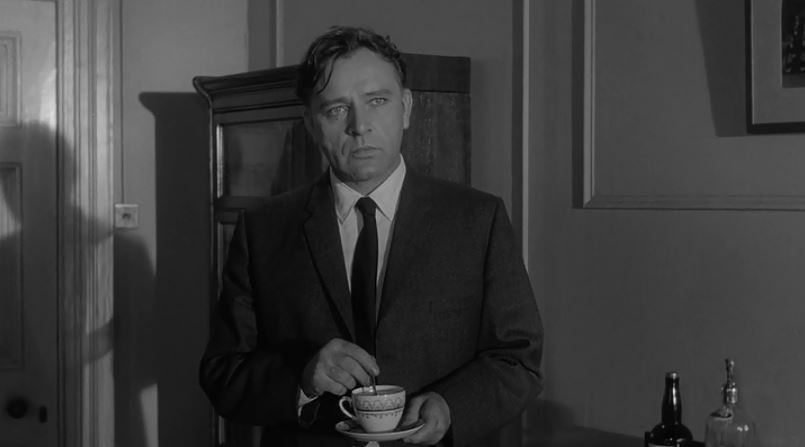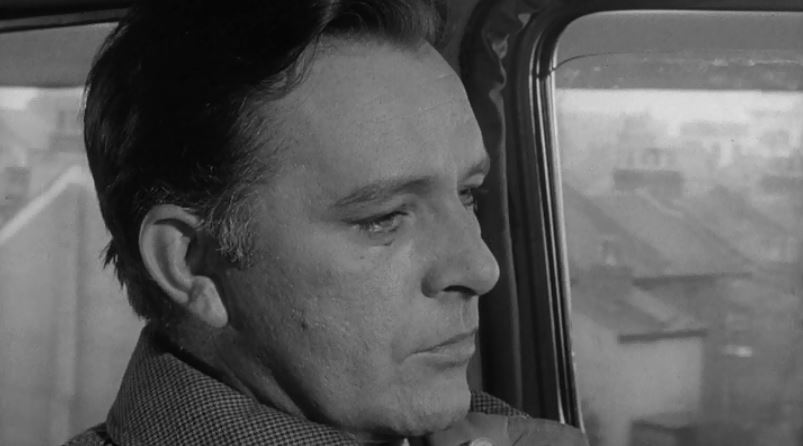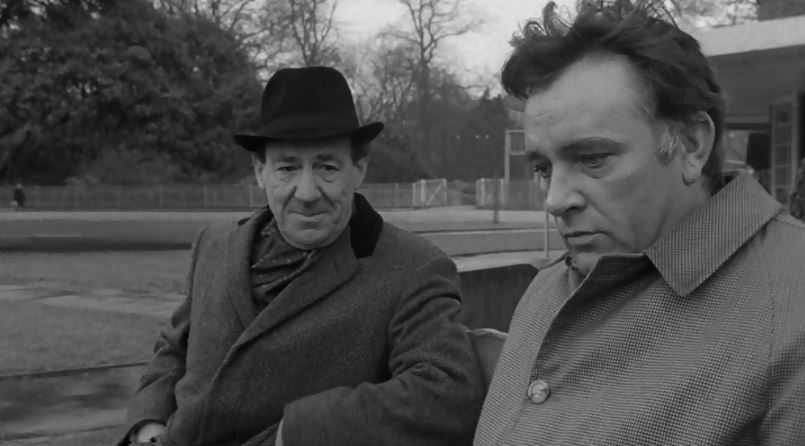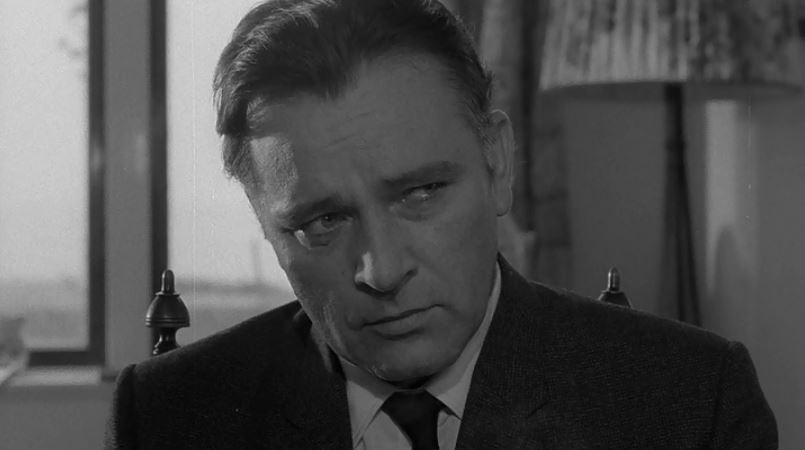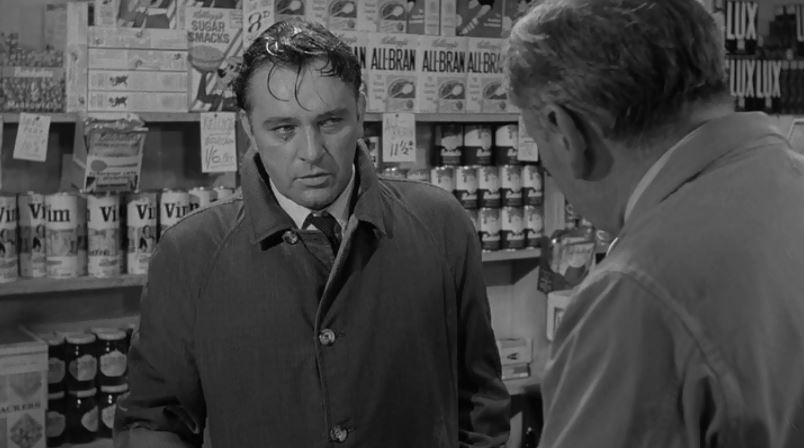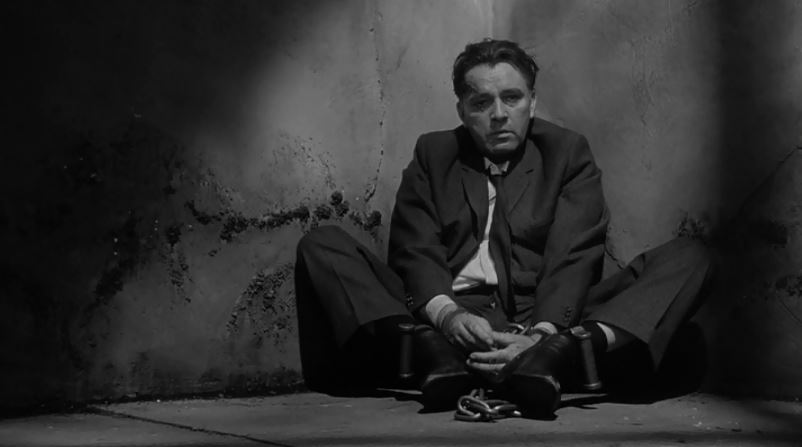Richard Burton gave one of his all-time finest screen performances in the 1965 movie The Spy Who Came in from The Cold — and with his help you can’t help but be drawn back into the world of the 1960s, with the seedy combination of tea, politics, cold streets and office rooms and the slow jazzy orchestral themes, played on a tenor reed. Burton appears as drunkard with a puffy, sleepy face — as a cynic — as a wit — hopelessly outlcassing all those he meets, merely by dint of his jaded and nasty face. It’s a sunless performance of one man’s personal hell, and a true descent from grimness into misery.
Martin Ritt's film of John le Carré's book is a highly condensed but perfect version of the book. It makes for interesting comparison with the 2011 Tinker, Tailor, Soldier, Spy which was well photgraphed, acted to perfection, but dramatically much more dull than it should have been. Still several le Carré tropes persist; questions that are left unanswered, staring silences and endless legwork. You really feel for the spies in the Richard Burton film, and get a sense of how difficult intelligence gathering is. In the 2011 Tinker, Tailor, Soldier, Spy, directed by Tomas Alfredson, the gloss and the technical prowess of 21st century production just make for a romanticised finery, and the film offers a surreal version of the past where it’s hard to care about anything.
It’s easy to care for Richard Burton as Alec Leamas, an intelligence drudge, burned out and for a part of the script, adrift in London. Burton fans may even find this humorous — the idea of Burton playing a drunk. Was Richard Burton up to playing drunk? Certainly — and Alec Leamas’ superiors agree, his tour de force being when in a fit of Irish rage he beats up a local shopkeeper, played in a low key manner by Bernard Lee.
What I think most people get out of The Spy Who Came in from The Cold however are the plot twists — the way that Burton seems to descend into disillusionment and drunkenness as part of a larger plan, which in turn sits within an even larger plot that nobody seems to be able to spot, or control. The truly heroic act which emerges from this is the grand failure of the interrogation of Burton’s character, which turns on the interrogator almost like a bad dream.
In The Spy Who Came in from The Cold Richard Burton doesn't offer any of the shouting for which he is often loved, but he does get a rage up at the end when the naiveté of Claire Bloom's character agitates him over the edge of his patience, and he fires out some great lines at her, including: "What do you think spies are? They are a bunch of seedy squalid bastards like me, little drunkards, queers, henpecked husbands ..."
NITPICK MOMENT: This is supposed to be Burton in a car, but the backdrop is certainly shot from a train.
You might also note that at the top of the film, The Spy Who Came in from The Cold has a dig at the American security services, in the same way as the James Bond films of the era did. There is an irony in these remarks, putting down the CIA as being lazy and inefficient, when in fact it was the Americans who would come to dominate world politics, while Britain — still holding that Brittanic chin up high in the 1960s — was in fact about to become another bit part player in the American adventure. Another slightly weird aspect is the first scene after Burton arrives back in the UK, when he is driven to see Control — but the backdrop to their car journey is surely shot from a train, given the elevation of the London they pass through, and the lack of other vehicles.
Following this there is a perfectly staid and frosty meeting with Control, which features cups of tea and long le Carré pauses, a trip to the labour exchange, Burton’s arrival in the strange library of the occult in which he appears to be working, and then his dates at Claire Bloom’s flat, where they discuss the world beneath her CND poster. Claire Bloom is well suited to this tame role, an innocent who is drawn in and ultimately to her demise — barely the same person that appears as the predacious lesbian in The Haunting (1963).
One of the recurring jokes in The Spy Who Came in from The Cold — if it could be called a joke — is the heirarchy among the handlers. Each time Alec Leamas is passed on to another handler, the new one is rude to the other, representing the disregard the spies have for each other, and the arrogance of their secret pecking order — all highlighting the cruelty of their world, often accompanied by a nasty laugh from Burton.
Once the action hits the continent, the unravelling of the plot comes to dominate The Spy Who Came in From the Cold, and some viewers may pine for the dodging about London which the early part of the film shows — with Robert Hardy, Cyril Cusack and Michael Hordern all excelling in the flats, public parks and clubs where the spies meet to speak in riddles. There are a few scenes on coastal Holland, which despite being shot on location aren’t framed with establishing shots of any merit — and then it is off to the east, for the interrogation and trial.
What’s not clear is whether Alec Leamas as presented by Burton is actually pretedning to be a frightening and dour drunk, or whether he actually succumbs to the horrors of his role and really does fall this low. Whichever way, it is a landmark espionage movie and one of Burton’s best and possibly the best of the 1960s crop of Cold War spy films. It’s darker and more realistic than any other films of this genre from the period and doesn’t feature any glamour of any sort, not even the slightest hint of such, and no mind control machines or any other daft retro gadgets.
This was the first ever film adaptation of a work by John Le Carre, and it more than stands the test of time, emerging almost as a historical document. You should know incidentally, that the phrase "Number 11 bus", which is heard a few times, is British slang for walking — your two legs look like the number 11. It’s just one of the great period details that give The Spy Who Came in from the Cold its hard edge. There is a quick scene in a smoky British pub, and some wandering around London that is incredibly evocative, glimpses into a world that like the Berlin Wall, has fallen away to being a mere relic.
The Spy Who Came in from the Cold (1965) at Wikipedia

